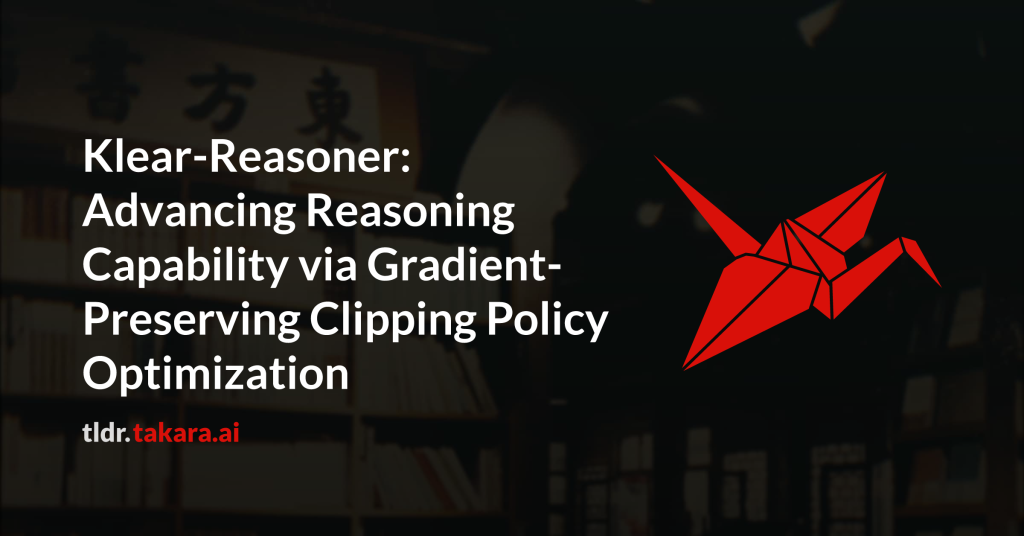We present Klear-Reasoner, a model with long reasoning capabilities that
demonstrates careful deliberation during problem solving, achieving outstanding
performance across multiple benchmarks. Although there are already many
excellent works related to inference models in the current community, there are
still many problems with reproducing high-performance inference models due to
incomplete disclosure of training details. This report provides an in-depth
analysis of the reasoning model, covering the entire post-training workflow
from data preparation and long Chain-of-Thought supervised fine-tuning (long
CoT SFT) to reinforcement learning (RL), along with detailed ablation studies
for each experimental component. For SFT data, our experiments show that a
small number of high-quality data sources are more effective than a large
number of diverse data sources, and that difficult samples can achieve better
results without accuracy filtering. In addition, we investigate two key issues
with current clipping mechanisms in RL: Clipping suppresses critical
exploration signals and ignores suboptimal trajectories. To address these
challenges, we propose Gradient-Preserving clipping Policy Optimization (GPPO)
that gently backpropagates gradients from clipped tokens. GPPO not only
enhances the model’s exploration capacity but also improves its efficiency in
learning from negative samples. Klear-Reasoner exhibits exceptional reasoning
abilities in mathematics and programming, scoring 90.5\% on AIME 2024, 83.2\%
on AIME 2025, 66.0\% on LiveCodeBench V5 and 58.1\% on LiveCodeBench V6.

